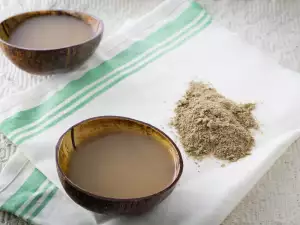The health benefits of thyme include relief from respiratory and gastrointestinal problems, improving mental acuity and protection from toxins that cause cancer. These benefits are the result of the high content of antioxidants in thyme.
Thyme contains bioflavonoids and other important volatile oils including thymol. Thymol is a volatile oil, which has strong antioxidant properties. Thanks to its unique combination of antioxidants, thyme is considered one of the best antioxidant foods.
Thyme is a powerful antiseptic and antibacterial agent. Many herbal medicines contain thyme or one of its essential oils. Thyme is a good source of calcium, iron, manganese, chromium, vitamin K and fiber.
A little known fact is that herbs (and spices) like thyme have far greater concentrations of antioxidants than any fruit or vegetable. Herbs also contain a particularly wide variety of antioxidants, making them one of the best antioxidant foods.
Antioxidants are nutritional compounds found in almost all plant foods (and also produced in the body). The main job of antioxidants is to protect your cells against oxidative stress caused by free radicals, which are considered a major cause of aging.
It protects against free radicals and is the most effective way to reduce the risk of many health problems associated with aging. The benefits of antioxidants include powerful protection against all kinds of degenerative diseases, such as cancer, heart disease, diabetes, arthritis, macular degeneration, Alzheimer's disease, and many more.

Antioxidants work together in harmony and each has its own specific features and advantages. An antioxidant may work in places in the body where no others can go.
Consuming more herbs and spices increase the antioxidants that you can get, and is one of the most effective measures you can take against disease and premature aging.
Thyme is an expectorant and has bronchial anti-spasmolytic properties, making it useful in the treatment of acute and chronic bronchitis, sore throats, coughs, laryngitis and asthma. The health benefits of thyme are applied in mouthwashes to treat inflammations of the mouth, infections of the throat and prevent gingivitis. Thyme is a common ingredient in herbal cough drops.
The health benefits of thyme include helping to relax the muscles of the stomach so that it can be used to relieve gastrointestinal problems, such as chronic gastritis, loss of appetite, indigestion, irritable bowels and colic. Thyme works to eliminate parasites in the gastrointestinal tract. Drinking thyme tea is useful for helping to dissolve and remove mucus from the gastrointestinal tract.
Thyme contains terpenoids, such as rosemary acid, which is recognized by its preventive properties against cancer. Regular consumption of thyme can increase the amount of DHA (docosahexaenoic acid, omega-3 fatty acids) in the brain, kidney, and heart cell membranes.
Thyme can be useful in the treatment of Alzheimer's disease, arthritis, skin disorders and muscle cramps. As a tonic, thyme is believed to stimulate the nervous system, relieve nervous disorders, depression, nightmares, nerve exhaustion and insomnia. Thyme acts as a memory booster and helps you to concentrate.




















Comments